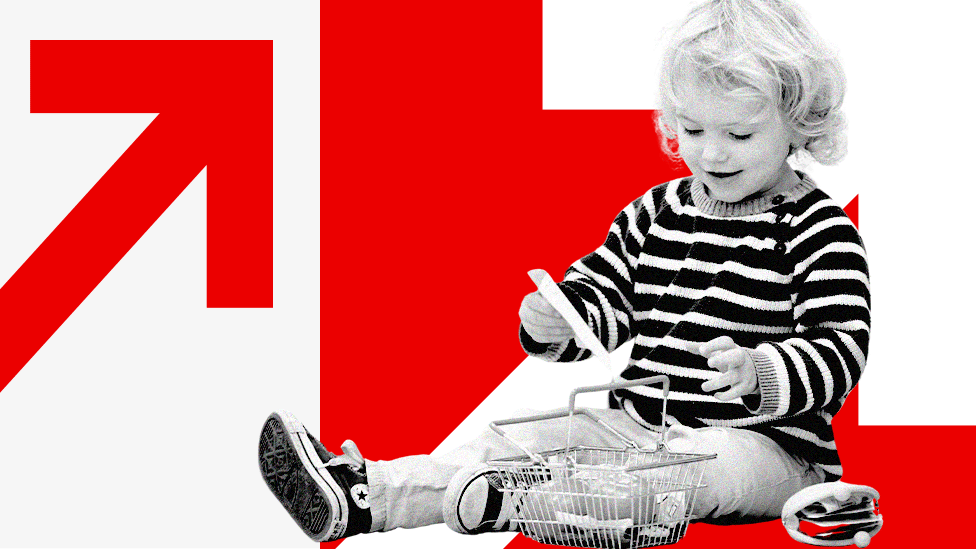Child benefit: How much is it worth and how are the rules changing?
- Published

More families can now claim child benefit payments after Chancellor Jeremy Hunt increased the amount you can earn before it starts to be withdrawn.
The government says the changes, which came into force on 6 April, will help more than half a million families.
Who is eligible for child benefit and how much is it worth?
You can get child benefit if you're responsible for bringing up a child who is:
under 16
under 20 if they stay in approved education or training
Only one person can claim child benefit for a child. There is no limit to how many children you can claim for.
On 6 April 2024, it rose to:
£25.60 a week for the eldest or only child, up from £24
£16.95 a week for younger children, up from £15.90
Child benefit is usually paid into a nominated bank account every four weeks.
But if you're a single parent or receive certain other benefits, such as universal credit, you can receive the money weekly.
You can find out how much child benefit you may be entitled to at the moment by using the government calculator, external.
The rules apply across the whole of the UK.
How much can I earn and how is the High Income Child Benefit Charge changing?
In his 2024 Budget, the chancellor increased the amount you can earn before you start to lose child benefit.
Previously, it was taken away entirely when one parent earned more than £60,000. This has been increased to £80,000.
It won't start to be reduced until one parent earns more than £60,000 - up from £50,000.
Payments are reduced as a result of the High Income Child Benefit Charge (HICBC), external.
The HICBC rules have been criticised for unfairly penalising single parents and families with one high earner.
A household where two parents earn £60,000 - with a total household income of £120,000 - can get the full amount.
But if a household has one parent who earns just above £60,000, their child benefit will be be reduced, and cut altogether once they earn more than £80,000.
In the Budget, Mr Hunt also announced a consultation about letting HMRC collect information about all the adults in the child's house.
This would mean that from April 2026, child benefit claims would be based on total household income instead of the highest earner's wage - a move that has been broadly welcomed.
How do you apply for child benefit?
You can claim child benefit 48 hours after you've registered a birth, or as soon as a child comes to live with you.
If you claim at a later point, payments can be backdated for up to three months.
You can claim online, external, by post, external or by phone, external.
You need the following documents:
your child's birth or adoption certificate
your bank or building society details
your National Insurance number
your partner's National Insurance number, if you have one
Only one parent can claim child benefit
How does child benefit affect National Insurance credits?
Claiming child benefit for a child under the age of 12 means you automatically get National Insurance (NI) credits, which count towards your state pension.
These credits can help fill gaps in your NI record if you're not working or if you don't earn enough to pay NI contributions.
The government advises that you should still fill in the child benefit claim form, even if you opt out of getting payments, so that you can get NI credits.
Doing so also means your child will automatically get an NI number when they turn 16. Otherwise they will have to apply for one.
What happens if your family circumstances change?
If a family splits up, the amount of child benefit paid depends on how many children there are, and where they live.
If you have two children and one stays with each parent, you would both get £25.60 a week for each child.
If you share custody of one or more children, only one of you can claim child benefit for them.
The eldest will still be entitled to £25.60 and any younger children will get £16.95 each.
If two families join together, the eldest child in the new family qualifies for the higher rate, and any other eligible children get the smaller amount.